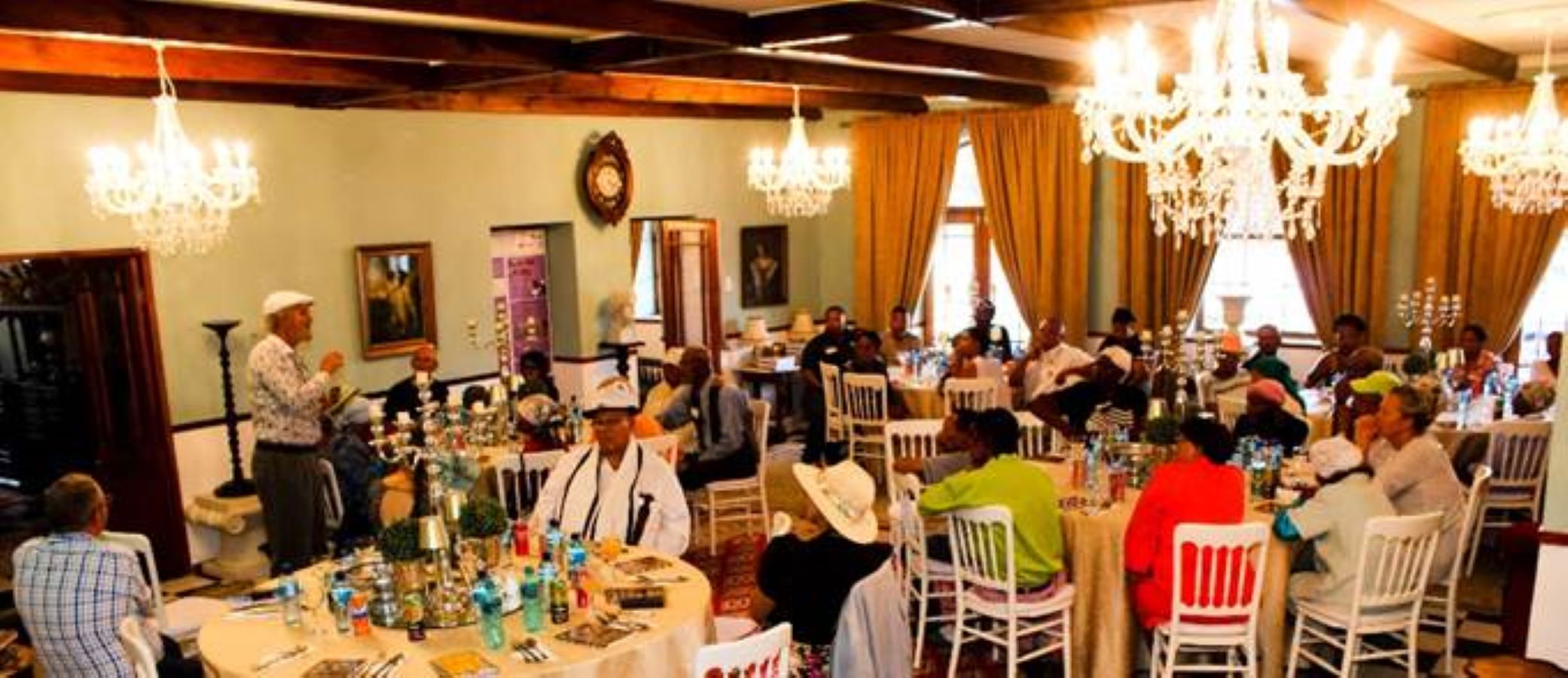Ethnobotanical research extends far beyond cataloguing plants or documenting Indigenous Knowledge Holders’ (IKHs) insights. Professors Ben-Erik van Wyk (UJ DST-NRF South African National Research Chair in Indigenous Plant Use) and Josef de Beer (NWU Research Unit Self-Directed Learning) have been at the forefront of this work, uncovering the rich traditional uses of plants in the Nama-Karoo biome since 2011. Their research, which expanded through field trips in 2019, has highlighted plant applications ranging from medicine and food to hygiene, cosmetics, and crafts.

On Wednesday, 12 March 2025, the professors returned to Carnarvon in the Northern Cape’s southern Bushmanland for a landmark event—hosting a feedback session with living participants of their research project. In a gesture of appreciation, they presented contributors with full-colour bilingual publications, Useful Plants of Bushmanland and Medicinal and Edible Plants of Bushmanland, which formally acknowledge their invaluable knowledge.
Beyond recognising the knowledge holders, the visit extended to primary and secondary schools in Carnarvon and Williston. More than 1,500 copies of Medicinal and Edible Plants of Bushmanland were distributed to learners and educators in an effort to foster an appreciation for indigenous plant wisdom among the youth. The initiative also sought to restore dignity and pride among rural communities by highlighting the global significance of their fragile oral traditions.
Since the 2019 fieldwork, 15 of the original 67 participants have passed away, amplifying the urgency to return and share the completed research. The event also served as a moment of gratitude, culminating in a special lunch for the knowledge holders.

With logistical support from the SKA/SARAO team, local municipal workers, and astronomy tour guides (astro-guides), participants from remote towns—including Williston, Brandvlei, Zwartkop, Vanwyksvlei, and Loxton—were transported to Carnarvon. The outreach continued in these communities, where the SKA/SARAO team ensured the remaining books reached local schools and libraries. A Botanical Art Competition was also introduced to inspire primary and secondary school learners.
The 2019 ethnobotanical study brought to light 16 new plant species records, 135 vernacular names or variations not previously documented, and 130 previously unrecorded plant uses. These discoveries underscored the depth of Khoi and San indigenous knowledge in the Nama-Karoo, proving that much remains to be explored.
By bridging scientific research with traditional wisdom, this initiative celebrates indigenous knowledge and ensures its preservation for future generations.



